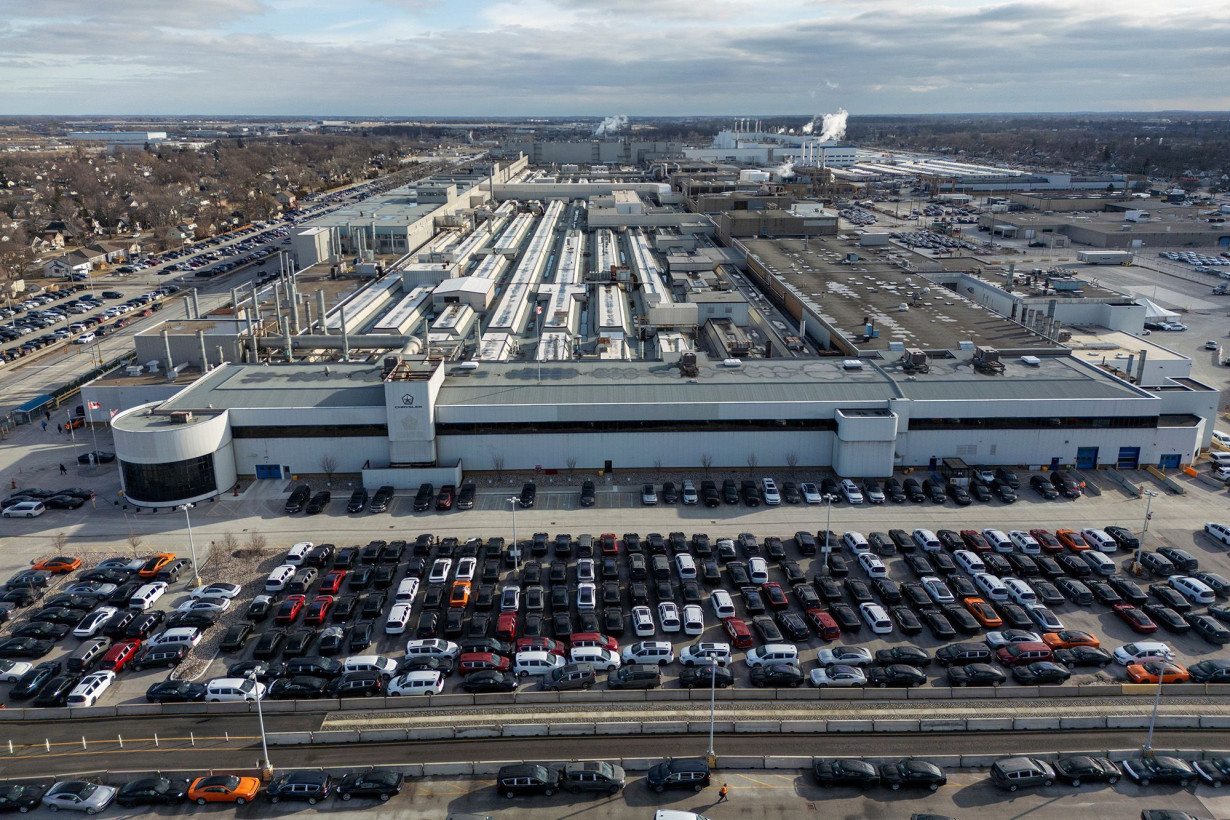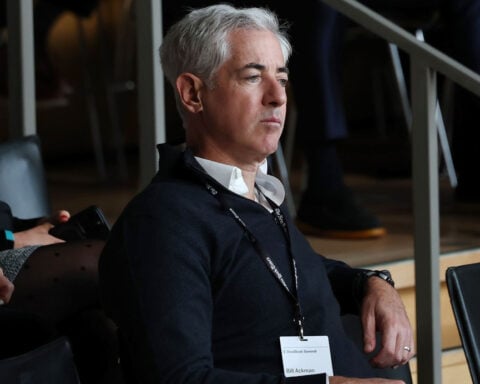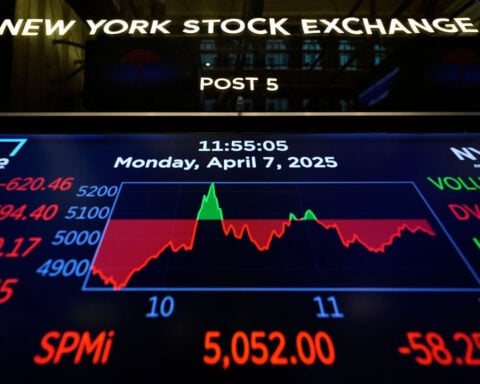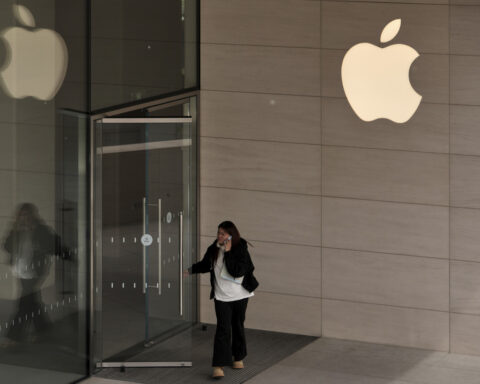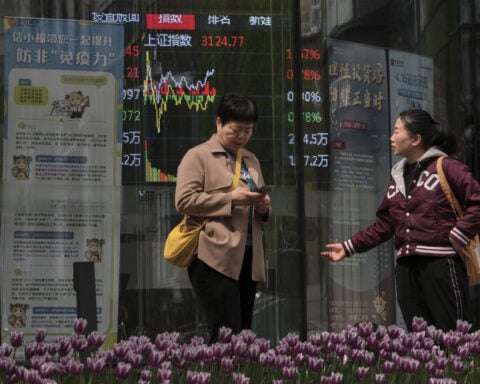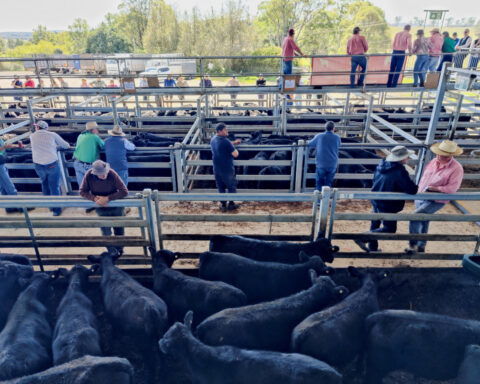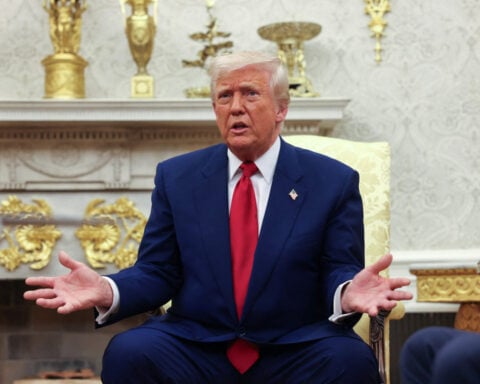New York (CNN) — There is nowhere to hide in the auto industry from President Donald Trump’s auto tariffs, according to former Ford CEO Mark Fields.
“The cost of vehicles will go up. It’s just math. The bottom line is there is absolutely no vehicle that won’t be impacted by tariffs,” Fields told CNN in a phone interview.
Trump’s 25% tariff on imported cars kicked in on Thursday as part of the president’s bid to revive American manufacturing jobs. The administration plans to slap tariffs on car parts by May 3. Bank of America estimates that a 25% tariff on all imported auto parts would increase the cost of US assembled vehicles by about $26 billion — or around $3,285 per vehicle on average.
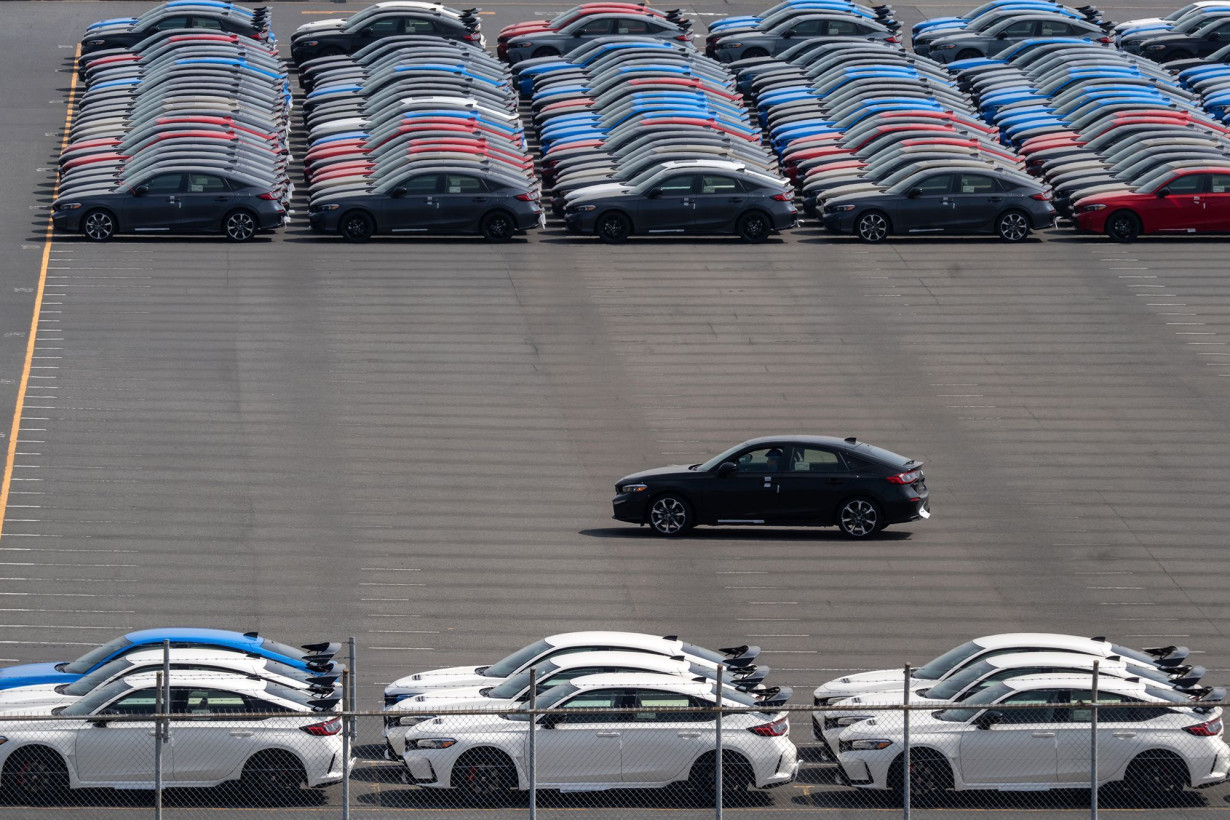
Even cars assembled at US factories will likely get more expensive because they use many foreign parts. Goldman Sachs estimates the cost of foreign-made cars will increase by between $5,000 and $15,000 per vehicle due to tariffs.
Customers likely won’t be buying it
Fields suspects that automakers will decide to eat some of the cost of the tariffs and pass along the rest to consumers in the form of higher prices and reduced incentives.
It’s unclear if consumers can stomach the pain of tariff-fueled price hikes, especially when car prices are already near all-time highs.
“In our view, the price increases will drive demand destruction, particularly as affordability has been a challenge for all buyers,” Bank of America analysts wrote in a note to clients Wednesday.
If automakers pass through the entire 25% tariff to consumers, US auto sales could tumble by about 3.2 million vehicles, or roughly 20% of the current annual sales trend, Bank of America estimates.
The analysts found that even if automakers aim to just break even by passing along only 15% of the tariff cost to consumers, auto sales would still drop by about 2.5 million.
The Wall Street Journal reported last week that Trump held a call earlier in March with auto CEOs and threatened them with even higher tariffs if they raise prices because of the import tariffs.
Trump denied to NBC that he pressured automakers to avoid raising prices.
“No, I never said that,” Trump told NBC’s Kristen Welker on Saturday. “I couldn’t care less if they raise prices, because people are going to start buying American cars.”
Fields, the former Ford CEO, said it’s “just unrealistic” to tell auto CEOs not to raise prices, and he said it’s “just another way of imposing price controls.”
But even then, presidential threats can be vague.
“It’s very intimidating when the president of the United States says, ‘Just suck up the costs and let it hurt your bottom line,’” Fields said. “How do you value the potential threat of pissing off a president? I don’t know how you quantify that.”
The White House argued auto tariffs will dramatically increase US auto production and auto jobs.
“This is going to lead to the construction of a lot of plants, in this case auto plants,” Trump said when announcing the tariffs last week. “You’re going to see numbers like you haven’t seen… in terms of employment. You’re going to have a lot of people making a lot of cars.”
However, it’s possible that some US jobs are lost if the auto tariffs hurt demand for cars to the extent that factories have to slow or halt some production. For instance, hundreds of Cleveland-Cliffs steelworkers have reportedly been laid off in Minnesota due to reduced orders amid the auto tariffs.
US suppliers would need to rethink their supply chains if assembly plants in Mexico and Canada shut down due to tariffs. Tariffs on auto parts “raises the risk to the supply chain and potentially could result in production stoppages,” Bank of America analysts wrote.
To incentivize buyers as the tariffs kick in, Ford said it will lower prices on their cars by offering employee pricing to all consumers from April 3 to June 2. Employees pay below the dealer invoice price, so, depending on the vehicle and other incentives, savings could be in the thousands of dollars, mitigating some of the increases from tariffs.
“We understand that these are uncertain times for many Americans,” Ford said in a statement Thursday. “Whether it’s navigating the complexities of a changing economy or simply needing a reliable vehicle for your family, we want to help. We have the retail inventory to do this and a lot of choice for customers that need a vehicle.”
New factories aren’t so easy
Still, Fields said the auto tariffs will “absolutely” cause automakers to reshore some jobs back to the United States.
Bank of America estimates that automakers can reduce their tariff costs by shifting the assembly of around 1 million vehicles to existing US plants.
But moving a factory isn’t easy, simple or quick. It can take considerable time to retool existing factories. And building new factories can take years and cost billions of dollars.
Bank of America said that over the next five-plus years, many automakers could relocate production to the United States if they have “large capital investments.”
And CEOs are unlikely to make those costly investments without clarity on where tariffs will be in the long run, especially as Trump both imposes and removes tariffs on short notice.
“They have to calculate the cost and return over decades. But it’s hard for them to predict the next 10 minutes right now,” said Sean Tucker, lead editor at auto research firm Kelley Blue Book.
The other question is whether there are enough workers to power new and ramped-up US auto factories, especially given America’s aging workforce and the ongoing immigration crackdown.
“Nobody is really talking about where the labor is going to come from,” Fields said.
Fields recalled how even during the sluggish economic recovery from the Great Recession, Ford faced challenges hiring and retaining workers.
“We had a tough time getting qualified people who were willing to do this hard, repetitive work on a factory floor. And we saw a lot of attrition from people who said, ‘Wow, this is really hard,’” Fields said.
Even if automakers find the workers, they’d need to pay them much more than in Mexico and provide more generous benefits. Fields said that would add to the cost of the vehicle – a cost that manufacturers would likely pass along at least in part to consumers.
Bank of America said it would be “essentially impossible” to reshore most auto parts due to the cost of labor in the United States and availability of workers.
Unintended winners
The trade-off of shifting production to the US is that automakers will be incentivized to ditch cheaper, low-margin vehicles in favor of more expensive ones with will have fatter profit margins. This will make it harder for Americans to get into any sort of wheels at all.
“This will exacerbate the need for affordable transportation,” Bank of America analysts wrote, adding that this could be solved by cheaper alternatives from Chinese automakers like BYD, Geely and others if they produce in the United States.
Fields suspects that all the trade war drama and tariff costs will end up costing Western automakers in the long run.
Ironically, the largest beneficiary may be one of the biggest trade targets of Trump.
“The biggest winners are the Chinese manufacturers,” Fields said. “While Western automakers are distracted managing these tariffs, the Chinese OEMs will keep their heads down and continue innovating.”
The-CNN-Wire
™ & © 2025 Cable News Network, Inc., a Warner Bros. Discovery Company. All rights reserved.

 Trump has begun another trade war. Here's a timeline of how we got here
Trump has begun another trade war. Here's a timeline of how we got here
 Canada's leader laments lost friendship with US in town that sheltered stranded Americans after 9/11
Canada's leader laments lost friendship with US in town that sheltered stranded Americans after 9/11
 Chinese EV giant BYD's fourth-quarter profit leaps 73%
Chinese EV giant BYD's fourth-quarter profit leaps 73%
 You're an American in another land? Prepare to talk about the why and how of Trump 2.0
You're an American in another land? Prepare to talk about the why and how of Trump 2.0
 Chalk talk: Star power, top teams and No. 5 seeds headline the women's March Madness Sweet 16
Chalk talk: Star power, top teams and No. 5 seeds headline the women's March Madness Sweet 16
 Purdue returns to Sweet 16 with 76-62 win over McNeese in March Madness
Purdue returns to Sweet 16 with 76-62 win over McNeese in March Madness
